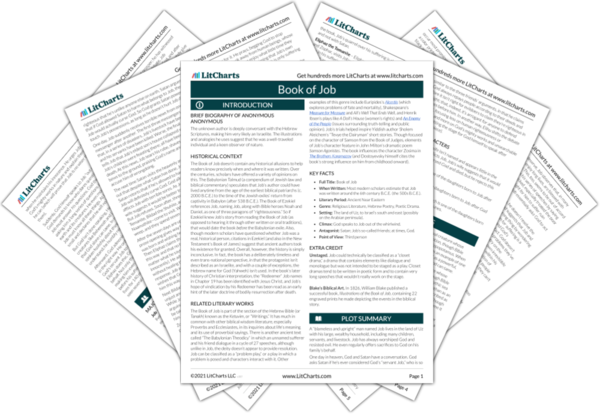The vast numbers of livestock Job owns reflect how greatly God has rewarded him—the figures are exactly double those he possessed at the beginning of the book. He is also blessed with the exact numbers of sons and daughters he had before catastrophe struck—which doesn’t mean that his children are replaceable, but shows that a righteous man like Job won’t have his legacy wiped off the earth. Only the daughters are specifically named (respectively, their names mean “dove,” “a type of perfume,” and “a type of eye shadow,” all probably meant to reflect their special beauty). Job is also blessed to live to an improbably advanced age—the number 140 being twice 70, which the Bible elsewhere (Psalm 90) identifies as a typical lifespan. If Job was presented as morally exemplary at the beginning of the book, he is now presented as an example of what God’s richest blessing looks like.


